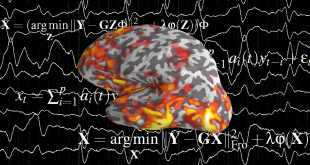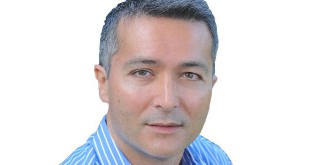The brain, information science, and artificial intelligence: Vincent Gripon is focusing his research at Télécom Bretagne on these three areas. By developing models that explain how our cortex stores information, he intends to inspire new methods of unsupervised learning. On October 4, he will be presenting his research on the renewal of artificial intelligence at a conference organized by the …
Read More »Search Results for: machine learning
TeraLab and La Poste have teamed up to fight package fraud
As a testament to how valuable data is becoming for companies, La Poste-Colissimo has teamed up with researchers from IMT schools to fight fraud. Through the big data platform TeraLab, launched in 2014, this public-private partnership has made it possible to explore algorithmic solutions to optimize fraud detection. This research demonstrates how important modernization is for organizations. Will data …
Read More »Octave: trustworthy and robust voice biometric authentication
Surely, voice biometric authentication would be an easier alternative to the large amount of passwords that we use daily. One of the barriers to exploitation involves robustness to spoofing and challenging acoustic scenarios. In order to improve the reliability of voice biometric authentication systems, Nicholas Evans and his team at Eurecom are involved since June 2015 — and for a …
Read More »Alexandre Gramfort translates our brain waves with algorithms
Alexandre Gramfort is a young researcher at Télécom ParisTech and just received an ERC starting grant. This prestigious European prize and support acknowledges his research efforts in signal processing and machine learning. For the last eight years, Alexandre Gramfort has worked on mathematical tools to better extract, analyze and visualize brain signals, essentially using electroencephalograms and magnetoencephalograms. In order …
Read More »Stéphan Clémençon
Télécom Paris | #bigdata #machinelearning
Read More »Hospitals put to the test by shocks
Benoît Demil, I-site Université Lille Nord Europe (ULNE) and Geoffrey Leuridan, IMT Atlantique – Institut Mines-Télécom The Covid-19 crisis has put lasting strain on the health care system, in France and around the world. Hospital staff have had to deal with increasing numbers of patients, often in challenging conditions in terms of equipment and space: a shortage of masks and …
Read More »Is there intelligence in artificial intelligence?
Jean-Louis Dessalles, Télécom Paris – Institut Mines-Télécom (IMT) Nearly a decade ago, in 2012, the scientific world was enthralled by the achievements of deep learning. Three years later, this technique enabled the AlphaGo program to beat Go champions. And this frightened some people. Elon Musk, Stephen Hawking and Bill Gates were worried about an imminent end to the human race, replaced by out-of-control artificial intelligence. …
Read More »Making algorithms understand what we are talking about
Human language contains different types of information. We understand it all unconsciously, but explaining it systematically is much more difficult. The same is true for machines. The NoRDF Project Chair “Modeling and Extracting Complex Information from Natural Language Text” seeks to solve this problem: how can we teach algorithms to model and extract complex information from language? Fabian Suchaneck and Chloé Clavel, both …
Read More »e-VITA, a virtual coach for seniors
Virtual coaching can play a crucial role in maintaining healthy and active ageing through early detection of risks and intervention tailored to the individual needs of senior citizens. However, current technologies do not meet these requirements. Instead they offer limited interaction and are often intrusive. The 22 European and Japanese partners of the e-VITA project will develop a “multi-modal personal …
Read More »The automatic semantics of images
Recognizing faces, objects, patterns, music, architecture, or even camera movements: thanks to progress in artificial intelligence, every plan or sequence in a video can now be characterized. In the IA TV joint laboratory created last October between France Télévisions and Télécom SudParis, researchers are currently developing an algorithm capable of analyzing the range of fiction programs offered by the national …
Read More » I'MTech L'actualité scientifique et technologique de l'IMT
I'MTech L'actualité scientifique et technologique de l'IMT









